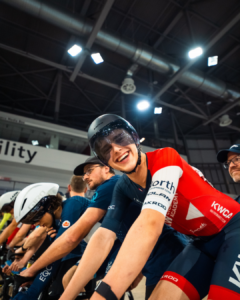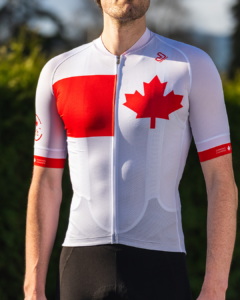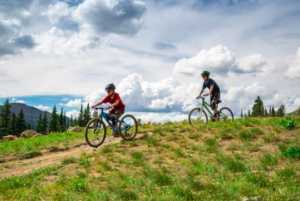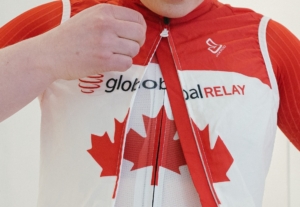HOW CANADIAN ATHLETES ARE STAYING PHYSICALLY FIT AND MENTALLY PREPARED AT HOME
by Philippe Tremblay, Marketing and Communications Coordinator at Cycling Canada
Amidst a global health crisis, Canadian cyclists of all disciplines are facing unprecedented uncertainty and challenges to their routines as they self-isolate and physically distance following the health recommendations of public officials in the places they reside. They are leading the way as examples to the rest of us on the dramatic measures that must be taken in the interest of the health and safety of our local, provincial, Canadian and global community in these difficult times.
All have had to make major alterations to their carefully planned training and race schedules. The 2020 Games, a major target for many athletes, have been postponed to no later than the summer of 2021, moving a career and in many cases a lifetime goal to an undetermined date. So how are two Olympians coping with the uncertainty, training for the future while keeping healthy and active with the extra time at home?
Leah Kirchmann has decided to stay in the Netherlands where her pro Team Sunweb has a training base in Sittard. There are currently no limitations on riding outdoors in the Netherlands so Kirchmann and teammate Alison Jackson have been able to continue their training. While riding can go ahead as planned, her major spring racing goals have been completely altered.
“I’ve been staying focused on the things that I can currently control,” explained Kirchmann. “I set some new training goals to keep up my daily motivation and I am just focused on getting the best out of myself every day. I feel really grateful for the opportunity to still ride outside every day, knowing that some of my teammates are not allowed out on the roads.”
Meanwhile, Catharine Pendrel is in self isolation in her home of Kamloops B.C. Despite the disruptions, she’s also using strategies to keep physical and mentally prepared. “I think maintaining routine and structure when some of our biggest season goals have been taken from us and there is a lot of uncertainty is really important. I start my day with a 10 minute meditation and 10 minutes of core, and then breakfast and a dog walk with my husband. It’s simple things, but normality and taking time to breathe make the world feel good.”
“Some days I go for a ride outside and others I ride the trainer. It is hard to know how hard to train right now so I am trying to keep basic fitness while touching all the different energy systems.”
The global health crisis has also come with mental challenges, especially for athletes who often rely on carefully planned training and racing blocks.
“To take care of my mental health during this uncertainty, I am making sure to do things that I enjoy every day, like trying out new recipes. Spending time in nature also brings me a lot of peace, and I’m making sure to keep up my social connections online with everyone back home.”
Pendrel meanwhile has started learning French along with her meditation routine.
So while season goals are being altered and training continues, Kirchmann and Pendrel are prime examples of how Canadians dealing with uncertainty in their daily lives and jobs can stay grounded in their physical and mental well being.








